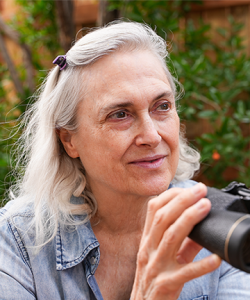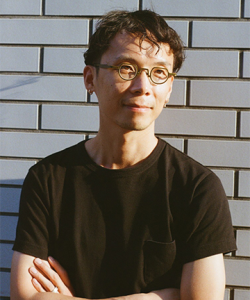Ten Questions for Sharon Wahl

“Do a lot of people feel this monogamous guilt in their writing lives?”—Sharon Wahl, author of Everything Flirts: Philosophical Romances
Jump to navigation Skip to content

“Do a lot of people feel this monogamous guilt in their writing lives?”—Sharon Wahl, author of Everything Flirts: Philosophical Romances
“‘It isn’t fair, it isn’t right,’ Mrs Hutchinson screamed, and then they were upon her.” The final sentence of Shirley Jackson’s classic short story “The Lottery” is included in a short list of “The Best Last Lines in Books” on Penguin Random House UK’s website, along with selections from a range of books by authors such as Ralph Ellison, Zora Neale Hurston, Franz Kafka, Ira Levin, and Virginia Woolf. Many of these lines are powerfully evocative and open-ended, whether darkly humorous, straight-up horrifying, or daringly hopeful. Jot down a list of your favorite last lines and use one of them as a prompt to provide either the first sentence of a new short story or to inspire a plot. How do the emotions, weight, and mood of this final sentence affect the way you use it in your own piece?
“I wanted to write something that dealt with Brexit and our relation to Europe, but in a very oblique way.” In this Waterstones interview, English author Alan Hollinghurst talks about the challenges in developing the gay, biracial protagonist in his latest novel, Our Evenings (Random House, 2024), and reflects on Britain’s changing nature across the book’s half century of time.

“Streamline. Outline. Find your center of gravity.” —Mike Fu, author of Masquerade
Watch the trailer for the television series adaptation of Charles Yu’s novel Interior Chinatown (Pantheon Books, 2020). Created by Yu, the series stars Jimmy O. Yang as Willis Wu, Ronny Chieng as Fatty Choi, and Chloe Bennet as Detective Lana Lee.
In this episode of Poured Over: The Barnes & Noble Podcast with guest host Chris Gillespie, award-winning author Richard Powers discusses how the issues of environmental exploitation and artificial intelligence inspired his new novel, Playground (Norton, 2024), which is set on the island of Makatea in French Polynesia.
In the title story of Saeed Teebi’s 2022 debut collection, Her First Palestinian (House of Anansi Press), a new romance begins with the main character, Abed, acknowledging what is involved in getting to know another person: “Not long after the first joys of finding each other had settled, Nadia asked me if I would teach her about my country. It was inevitable. The walls of my Toronto apartment were conspicuously covered with Palestinian artifacts, and donation brochures featuring Gazan children were often lying around.” With the story’s title and this opening, Teebi invites the reader to consider and reflect on their own expectations of how this relationship will develop. Write a short story that charts the progression of a relationship, from somewhere near the beginning to somewhere near the end. What character details do you explicitly put into place, and what assumptions do you rely on to create a sense of expectation?
In this event presented by Green Apple Books and the Center for the Art of Translation celebrating the launch of Yuri Herrera’s novel Season of the Swamp (Graywolf Press, 2024), translated from the Spanish by Lisa Dillman, Herrera and Dillman read from the book and discuss their collaborative approach to translation in a conversation with Ingrid Rojas Contreras.
In this Talking Volumes event with MPR News host Kerri Miller, Pulitzer Prize–winning novelist Louise Erdrich reads from her latest novel, The Mighty Red (Harper, 2024), and discusses how her upbringing in the Red River Valley in Minnesota shaped her writing.
In this installment of the PBS American Masters documentary series Renegades, which highlights the cultural contributions of little-known historical figures with disabilities, the series spotlights the life and career of editor Judy-Lynn del Rey who revolutionized the world of science fiction by editing and publishing books from writers such as Arthur C. Clarke, Isaac Asimov, Philip K. Dick, and George Lucas.